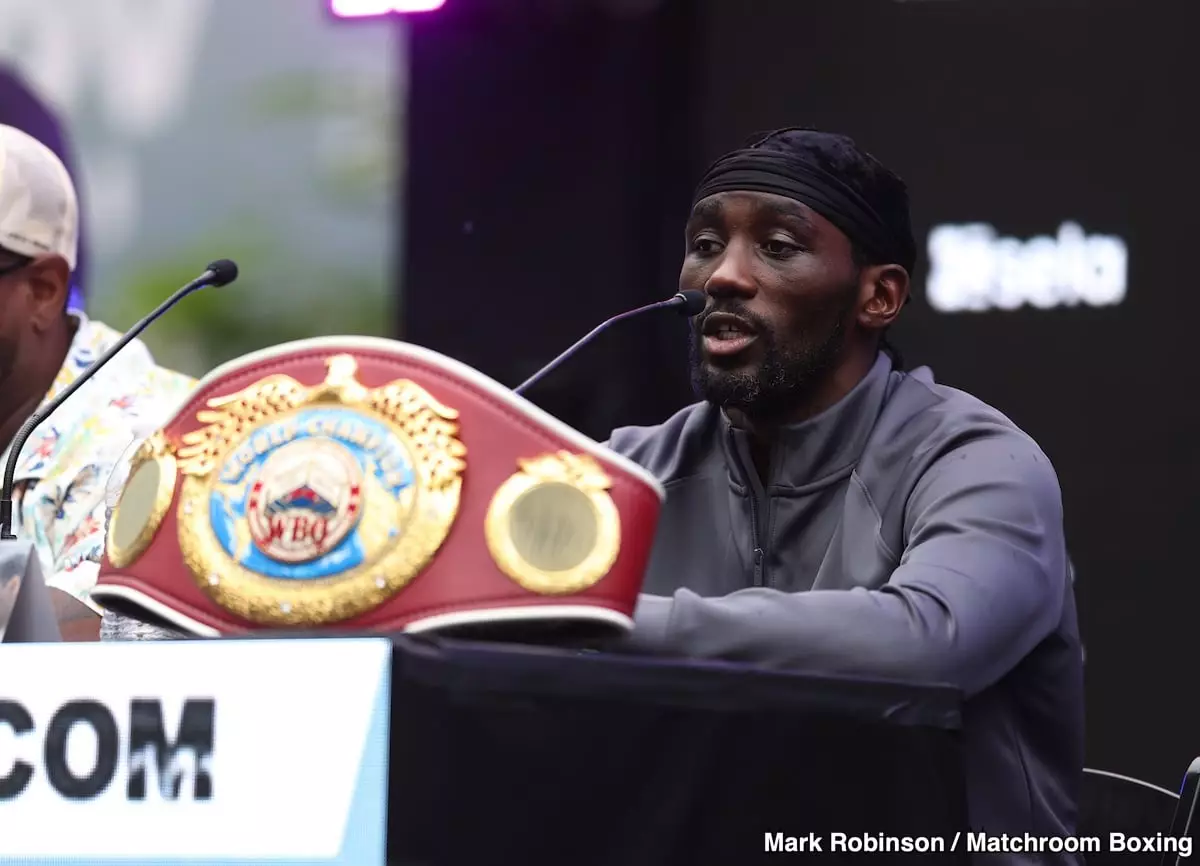Canelo Alvarez stirred the pot this week with his comments regarding Terence Crawford’s boxing legacy, igniting a debate over the former’s career qualifications and the strength of his opponents. With Crawford boasting a record of 41 wins and no losses, including 31 knockouts, one would assume that his legacy should be secure. Yet Alvarez’s remarks regarding Crawford’s limited opposition cannot be dismissed lightly; they reveal a complex narrative about matchmaking, legacy, and the dynamics of modern boxing.
The Definition of “Good” Fighters in Boxing
Canelo’s disagreement with Crawford’s reputation stems from an essential boxing truth: the metrics that truly define a “good” fighter extend beyond their win-loss record. Alvarez accused Crawford of having only one significant victory over Errol Spence, implying that the boxing world should not consider a career like Crawford’s illustrious when it lacks depth in elite competition. Upon closer analysis, it becomes evident that Crawford’s greatest achievements have come against fighters who, while skilled, have not reached the pinnacle of boxing excellence.
The implications of this are multifaceted. While it is true that each fighter offerings their unique talents, the lack of elite fighters in Crawford’s history raises questions about the matchmaking philosophies in contemporary boxing. In the past, fighters often faced many champions and contenders, leading to clearer hierarchies among champions. In contrast, recent promotional practices sometimes prioritize victories over quality, leading to inflated legacies built on less competitive resumes. While one championship victory can define a moment in a fighter’s life, the depth of adversity faced over years highlights true greatness.
Crawford is highly talented and has shown this in the ring, but the phrase “one win wonder” alludes to the limitations present in how he achieved his success. Canelo’s statement about Crawford beating “one good fighter” reframes the narrative around the proud pugilist’s accomplishments. Although Crawford made Spence look less formidable with his masterful performance, the underlying narrative—that Spence was a damaged version of himself—cannot be ignored. The narrative shifts when the context of Spence’s struggles is added into the equation, shedding light on the competitive environment in which Crawford has thrived.
However, it poses the question: How much authenticity is there in beating a fighter who may not represent their best version? If a significant part of the boxing audience perceives many of Crawford’s opponents as “nobodies,” then Crawford’s achievements might be viewed as slightly hollow, marking a disconnect between skill and legacy.
The contemporary boxing landscape has become riddled with promotional agendas that often prioritize financial gain over competitive integrity. Crawford’s management has undoubtedly crafted a careful path through the boxing ranks, ensuring he remains undefeated while favoring matches that align with their promotional objectives. This brings to light the challenge champions like Crawford face: the constant balancing act between maintaining a perfect record and actively seeking out battles against formidable opponents.
One might argue that successful promotions could lead to meaningful matchups that captivate fans, but at what cost? The lack of confrontation between rising talents such as Jaron Ennis, Vergil Ortiz Jr., or the potential for a fight at 168 against Canelo himself reflects a broader reluctance from Crawford to engage with A-level competition.
Legacy remains one of the most crucial elements defining the careers of fighters. Alvarez’s critique is not merely a personal affront; it echoes a common frustration among boxing fans who long for genuine rivalries and high-stakes encounters that elevate the sport. Terence Crawford’s career, while undeniably impressive in its accomplishments, calls for a reevaluation of what constitutes a boxing legacy in today’s promotional framework.
For Crawford to carve an undisputed legacy, engagement with high-caliber opponents is essential; otherwise, he risks being labeled as a champion who fought primarily in a controlled environment rather than in a landscape filled with risks and uncertainties. Alvarez’s comments serve as a reminder of the high standards of competition and the ever-evolving nature of what it means to be a true champion in the boxing world. As fans and analysts dissect this narrative, Crawford will need to confront not only the champions but also the perceptions that accompany the fight game. Only through engagement with elite competition will he redefine his legacy in the eyes of those who question its authenticity today.

